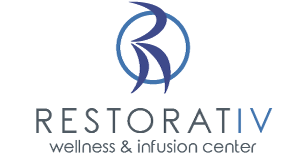It’s normal for everyone to feel sadness from time to time. Clinical depression, on the other hand, is a concerning mental health disorder that requires attention and treatment. Knowing the difference could save your life and change your world. According to recent research and various case studies, one in five Americans meet the criteria for clinical depression. Many of the individuals who would benefit from treatment do not even seek medical advice due to lack of information or misinterpretation of their own symptoms. Perhaps you are asking yourself: Is it just sadness, or am I depressed?
NBC News recently featured a story about how to tell the difference between depression and sadness. Here are a few symptoms of depression that may indicate you need professional help:
- Sadness that hinders function and has no specific cause
- Lasts longer than two weeks
- Black & white thoughts—no gray area
- No room for change—improving your life seems impossible
- Unusual sleep patterns—too much, too little, and everything in between
- Extreme changes in appetite—weight gain or loss
- Feels like you’re putting in extra effort to make it through the day and pass for okay
- Grief may lead to depression with multiple key points
Antidepressants, as well as talk therapy and holistic treatments, are typically used as the first line of defense against clinical depression. Talk therapy or psychotherapy is based on the idea that talking about what’s bothering you can help to put your concerns into perspective; in a way, it allows you to rationalize your feelings and begin to heal. These are typically used in combination with antidepressant medications to reduce the symptoms of depression.
If that doesn’t work, ketamine infusions are becoming increasingly popular, and 70% of infusion patients report a rapid reduction in their depressive symptoms. This allows them to add new, joyous memories to their lives and return to what and who they love. It is particularly sought out by the 10-30% of patients whose depression does not respond to other medications. Ketamine is non-addictive and administered under medical supervision. Often used in conjunction with talk therapy, it is an excellent option for those with treatment resistant depression.
Contact RestoratIV Wellness & Ketamine Treatment Center
RestoratIV Wellness is one of southern New Jersey and the greater Philadelphia area’s most trusted providers of ketamine infusions. Contact us for a free consultation to learn if you’re a candidate for ketamine infusions. We have a highly trained and experienced clinical staff who will answer any questions you may have about ketamine treatments. We look forward to meeting you!


Recent Comments